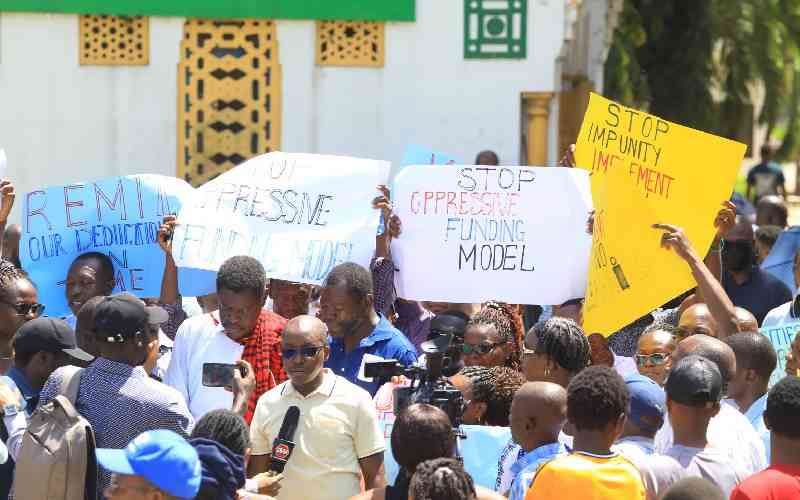Faith Nyongesa
Public universities nationwide experienced a complete halt in academic activities on Wednesday as the Universities Academic Staff Union (UASU) and the Kenya Universities Staff Union (KUSU) initiated a countrywide strike.
This disruption is primarily due to the prolonged delays in finalizing the Collective Bargaining Agreement (CBA) for the period of 2021-2025 with the government.
At various universities, including Maseno, Kabianga, Moi, Maasai Mara, Kisii, and Masinde Muliro, striking faculty members organized protests to express their unity and dissatisfaction with the government’s lack of action on their grievances. Union representatives voiced their frustration over the sluggish pace of negotiations concerning the CBA.
Concerns raised by the unions included delayed salary payments, a proposed salary increase of 7% to 10%, the failure to remit statutory deductions, excessive taxation, and the absence of adequate medical coverage. These issues reflect the growing discontent among academic staff.

Union leaders emphasized their readiness to engage in dialogue with the government, stressing that the strike would continue until a satisfactory agreement is reached. The unions made it clear that their members’ concerns must be addressed comprehensively for them to consider returning to work.
We nurture these children after they finish primary and secondary schools and make them ready for the labour market but where is the appreciation? The union has been agitating for various things that were supposed to be addressed by the Ministry, unfortunately these things have not gotten the attention of the State,” said Omuse.
“We feel that maybe the only language they will listen to is striking. The issues raised at the national level are the same issues that are affecting us at the grassroots level. We have a problem with local CBAs 2013-2017, 2017-2021, and 2021-2025…all of them pending.”
The strike has significantly impacted students, many of whom are now left in limbo regarding their education and academic progress. With classes suspended, students are concerned about the potential delays in their academic schedules and graduation timelines.
The situation has also drawn attention from the public and media, highlighting the ongoing struggles of university staff for fair treatment and better working conditions. The lack of resolution could lead to further escalations and prolonged disruptions in higher education.
As negotiations remain stalled, both the unions and university administrations are under increasing pressure to find a viable solution. The outcome of this strike could set a precedent for future labor relations in the education sector.
In summary, the current strike is a manifestation of deeper issues within the university system, reflecting a need for urgent dialogue and action to ensure that the rights and needs of academic staff are adequately addressed.






